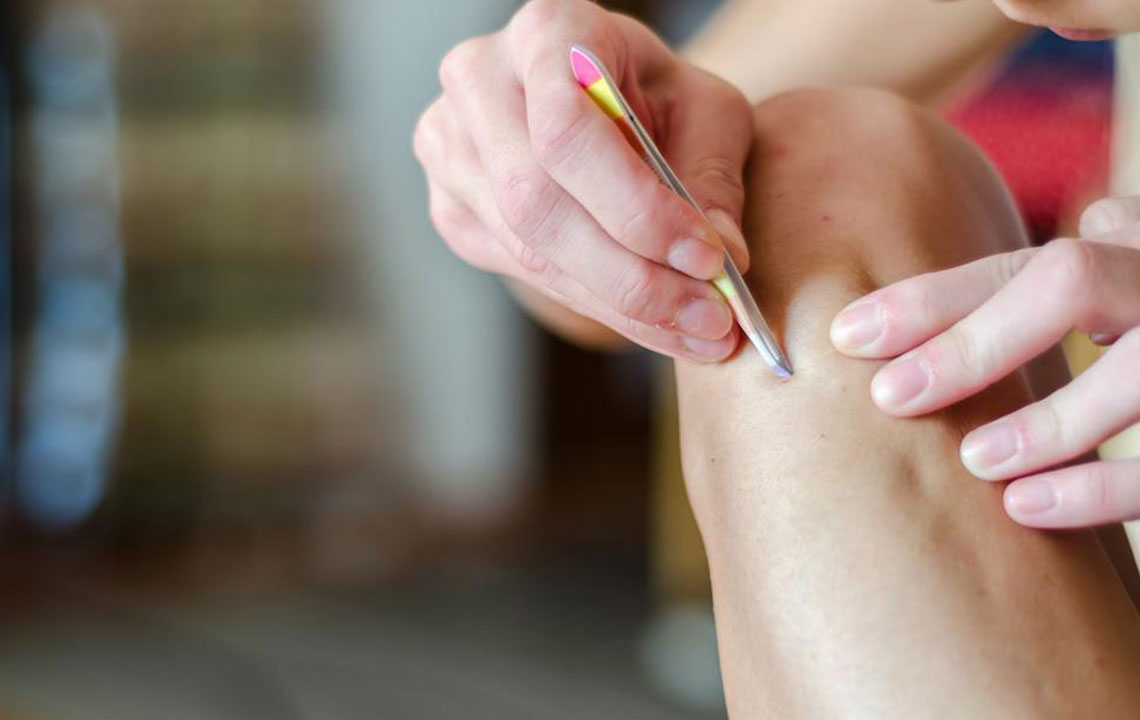Causes of Ingrown Hair and Techniques to Remove Them
Ingrown hair is hair that curls around and grows back into the skin. Ingrown hair is not a serious problem, but it can be embarrassing as well as irritating. They can raise a red bump on the skin, which can be painful, itchy, and uncomfortable. While it is common to occur on the cheeks and neck of men, it is prevalently seen to occur on the legs, armpits, and pubic hair in women.
Anyone can get an ingrown hair, but it is common in people having thick, curly, and coarse hair. Also called razor bumps, its primary cause is shaving, waxing, or tweezing.

Causes of ingrown hair
The causes why there is a growth of ingrown hair can range from having too much oil in the hair follicle to using very sharp blades to shave off the hair on the body. The other probable reasons for having excessive ingrown hair are as follows.
- Total lack of moisture in the skin. To avoid this, one should drink lots of water to keep both the body and skin hydrated.
- Waxing, tweezing and electrolysis can cause skin irritation to a great extent.
During any of these processes, it is probable that the ingrown hair would get caught in the healing skin.
When there is an accumulation of dead cells on the surface of the skin, the rate of ingrown hair is more probable to increase. For this, exfoliation of skin using a scrub would help a lot.
Too much of scraping off of the skin due to sharp blades can cause an excessive growth of ingrown hair too.
Below are certain ingrown hair removal treatments and care that needs to be adhered to get rid of ingrown hair that occurs in any part of the body.
Ingrown hair removal techniques
Possible treatments
Warm compress
Applying a warm compress can be an effective ingrown hair removal treatment. Sometimes, cold compress or rubbing can also be useful. In addition, circular movement with a soft bristled brush is an effective treatment.
Avoid removing ingrown hair
Until the ingrown hair goes away, it is very unwise to shave, wax or remove the hair. Pricking or scratching ingrown hair might leave behind scars and even increase the irritation. Furthermore, it can cause infection, which isn’t easily cured.
Gentle pull
One can use sterile tweezers to bring out the hair, but you need to be careful not to dig into the skin as that might result in infections.
Cream and dead skin removal
A steroid cream for topical treatment is recommended by a doctor for treating redness that occurs due to the presence of ingrown hair.
Retinoid
Although this drug is good to speed up the cleansing process, it can cause dry skin and is very harmful to pregnant women.
If an extreme situation arises, like the ingrown hair bumps are filled with puss and cause a lot of pain, one might have to consult a doctor immediately. He or she might prescribe antibiotic washes and creams, depending on the severity of the condition.
Preventive measures for ingrown hair removal
Waxing and other methods of ingrown hair removal is not a practical option to prevent ingrown hair. There exist many alternatives, and they are as follows.
- Use laser therapy for removal of hair
- Use single-bladed razors for shaving
- Gentle exfoliation every day to bring out any stubborn ingrown hair
- Moisturize well before you shave
- Shave in the same direction as the hair has grown
- Rinse the blade after every stroke while shaving
- Prefer on-razor hair removals methods to avoid ingrown hair
- Even if you are opting for hair removal with a razor, it should be treated with mild soaps and water, before shaving
- Use depilatory creams for hair removal
There are certain don’ts that one needs to follow as far as ingrown hair removal is concerned. Digging into the skin, squeezing into the bumps and plucking with great force is a big no-no. It can cause infections, leaves scars, and even a bit of blood loss.
Ingrown hair can occur in anyone, and most of the cases can be prevented by taking care while shaving. If the problem keeps coming back, you can seek advice from an expert for an effective ingrown hair removal treatment.

